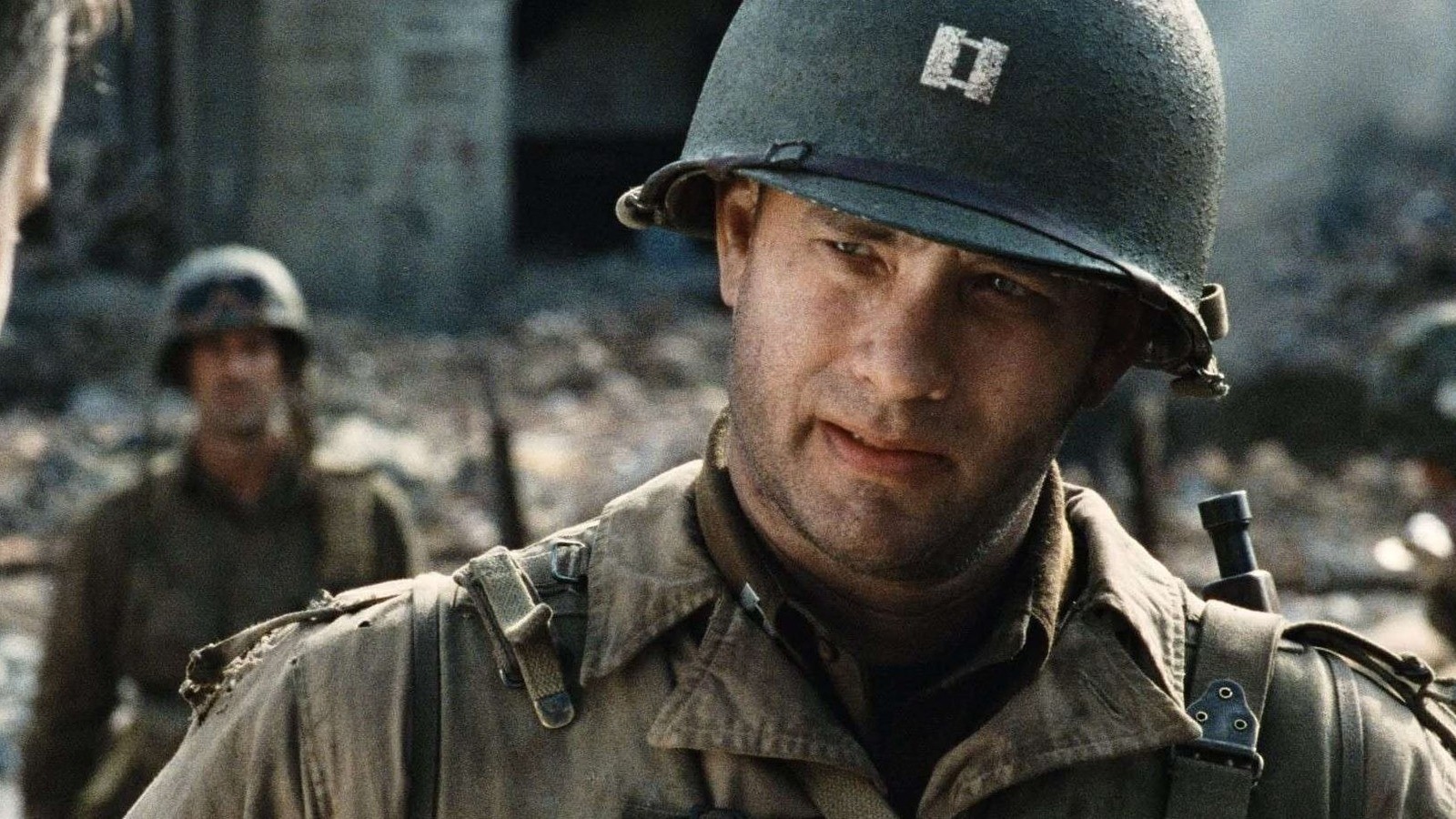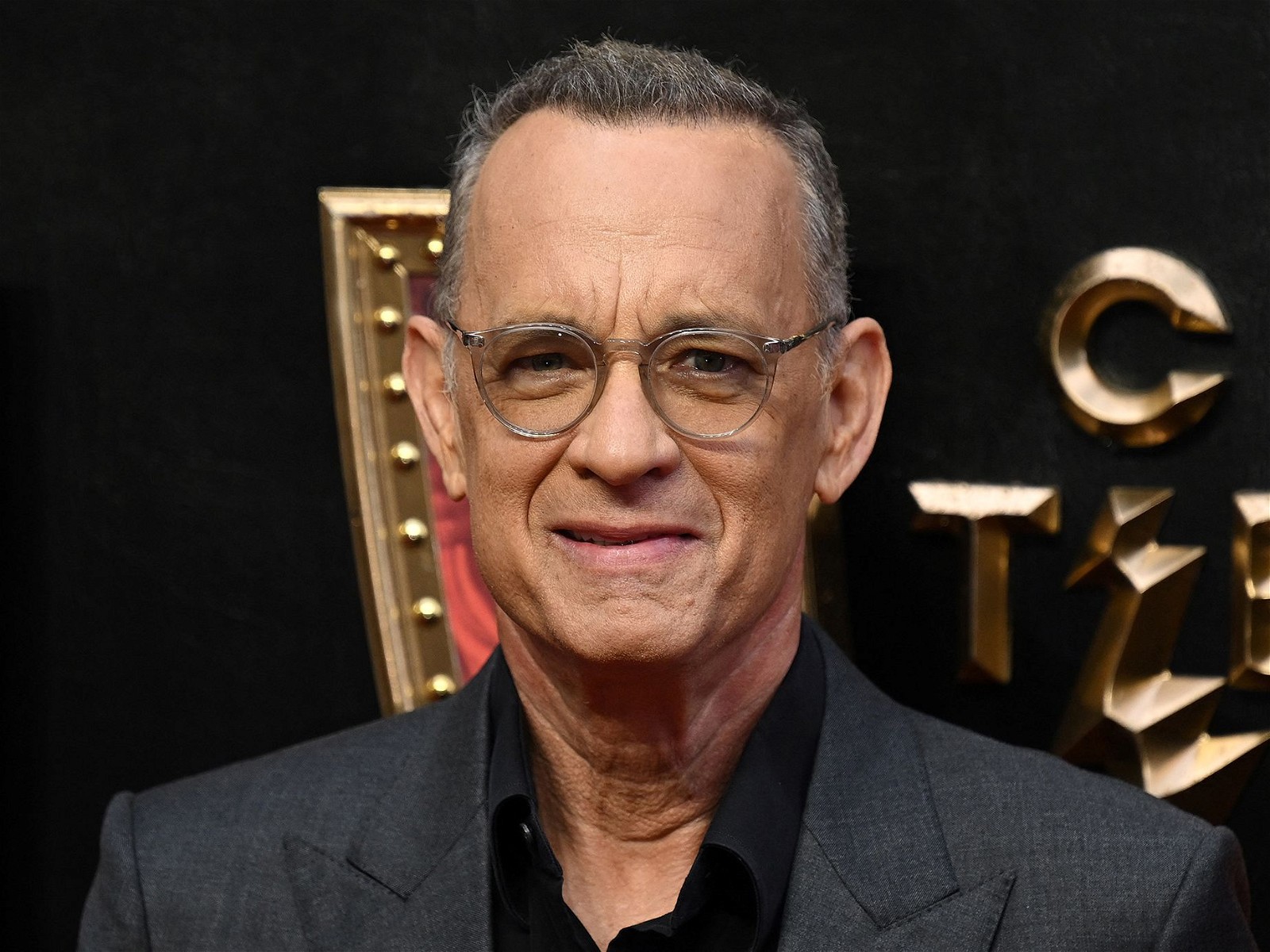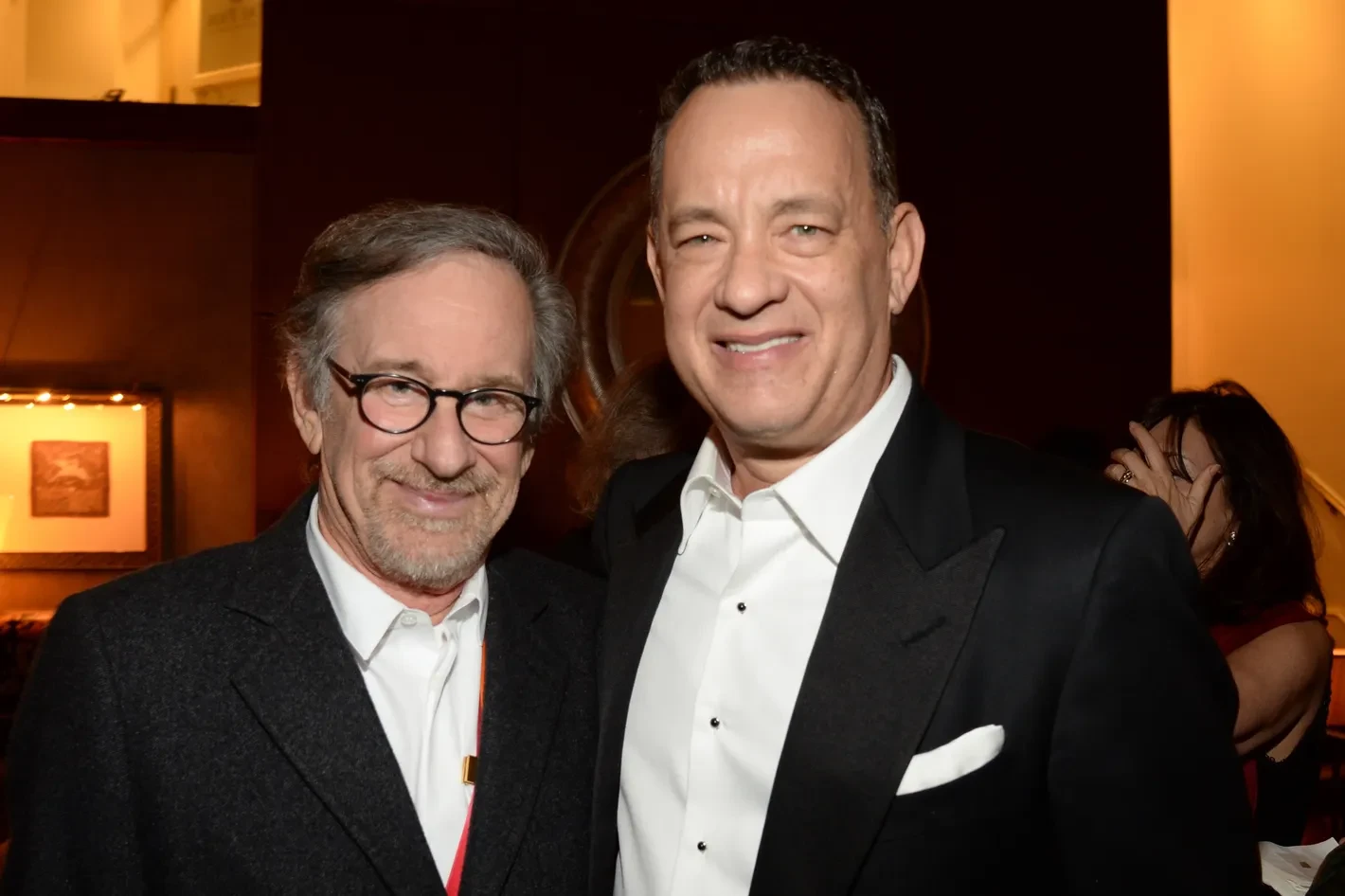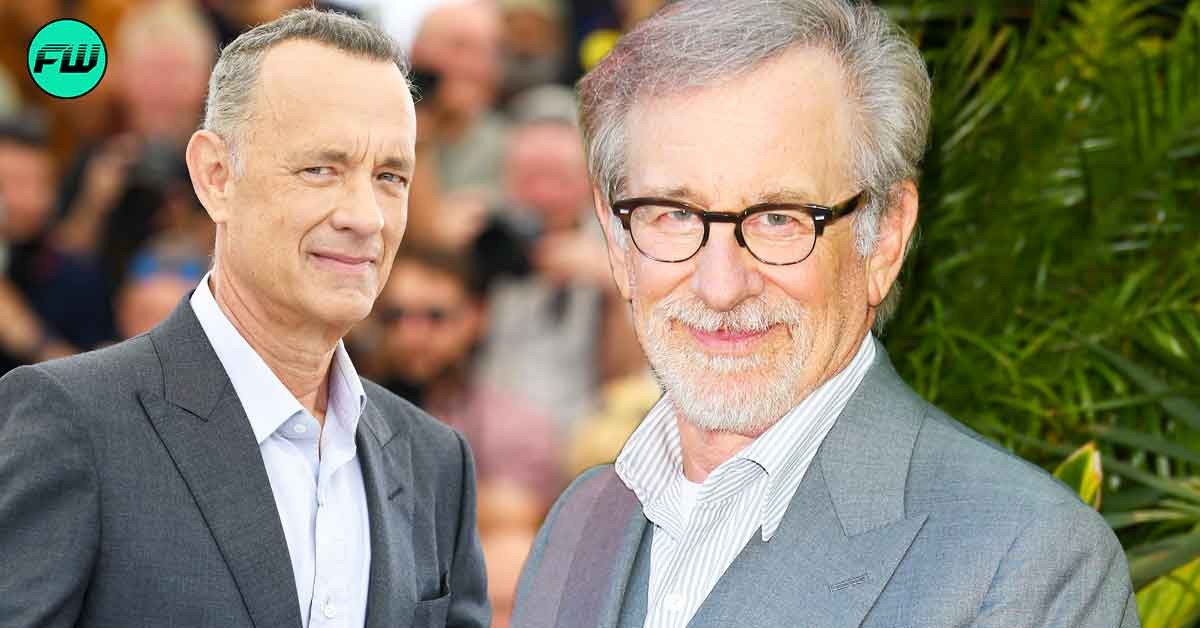Some of the most memorable movies of all time feature Steven Spielberg as director and Tom Hanks as an actor. Their collaborations on films like Catch Me If You Can, Bridge of Spies, and The Post, as well as the critically acclaimed World War II epic Saving Private Ryan, have consistently delivered remarkable storytelling that has captivated audiences worldwide.
However, there was a clash of vision and artistic integrity behind the scenes of their collaborative efforts. In an interview with The New York Times, Tom Hanks said that director Steven Spielberg was hesitant to have his character, John Miller, kill Germans in the film Saving Private Ryan.
Tom Hanks Pushes Back
In films like Philadelphia, Apollo 13, and Forrest Gump, Tom Hanks proved himself to be an actor capable of playing both comedic and dramatic roles by 1998. Despite his proven success, Hanks had to prove to Hollywood that he could handle darker, more nuanced roles.

Spielberg hesitated to give Hanks the role of John Miller in Saving Private Ryan because it would go against Hanks’ “nice guy” reputation. In an interview with The New York Times, Hanks revealed that Spielberg told him, “I don’t think I want to see John Miller fire his gun and kill Germans” while filming Saving Private Ryan. Hanks, unfazed, reiterated his determination to show true soldierhood in his role.
“On Saving Private Ryan Steven Spielberg said, ‘I don’t think I want to see John Miller fire his gun and kill Germans.’ I told him: ‘I’m sorry, Steven. You’re not going to get me all the way over here and turn me into some other guy just because you don’t want Tom Hanks to kill soldiers.’”
Suggested Article: “Nah, I’m good”: Jenna Ortega Was Forced to Accept $480,000 ‘Wednesday’ Role Due to This Reason
This was not Tom Hanks’ first time in a sticky situation. Forrest Gump director Robert Zemeckis voiced his disapproval of Tom Hanks’ character’s decision to fire at the Vietcong during the film’s Vietnam War scenes.

Hanks, however, vehemently argued that without these scenes, the character’s military training and abilities would be weakened. For an accurate portrayal, he thought it was essential to highlight the soldier’s skill.
“There’s the scene with the ambush in Vietnam, and Bob Zemeckis originally wanted Forrest to be confused and run away. I said, ‘Bob, why am I playing a soldier who is really good at his basic training without then showing me slapping in my clip and firing a set of rounds?’”
Hanks has consistently broken new ground thanks to his dedication to realism and genuine storytelling that makes his characters feel more real to the fans.
Tom Hanks vs. the Directors
Beyond his work with Spielberg, Tom Hanks has consistently maintained the integrity of his characters. While filming Charlie Wilson’s War, he also confronted director, Mike Nichols. Hanks objected to a part of the film where his character, Charlie Wilson, snorted cocaine.

Despite his previous willingness to explore such options, Hanks ultimately decided against including the scene because he was concerned it would steal the spotlight from Wilson’s character’s more nuanced and interesting aspects.
His thinking was influenced by a production lesson he learned from the giant spider scene cut from the 1933 version of King Kong. “Those kinds of choices are in every movie,” Hanks said, referring to his defense of the cocaine scene in Charlie Wilson’s War. He worried that certain scenes could detract from the story’s significance if they weren’t handled properly.
“It was never in the script to show Charlie Wilson snorting coke. I would have done it. I didn’t care. Those kinds of choices are in every single movie.”
This tension between a director’s vision and an actor’s interpretation of a character is beautifully illustrated by the conflict between Steven Spielberg’s initial reservations and Tom Hanks’ unwavering commitment to authenticity in Saving Private Ryan.
Read More: “They’re like ‘Act, monkey!’”: Jennifer Lawrence Lost $3 Billion Franchise Role to Kristen Stewart
Spielberg was hesitant to have Hanks’ character kill or be killed on screen, but Hanks’ conviction won out. These intense and realistic scenes contributed to Saving Private Ryan’s status as one of history’s most potent and emotionally resonant war films.
Source: The New York Post


